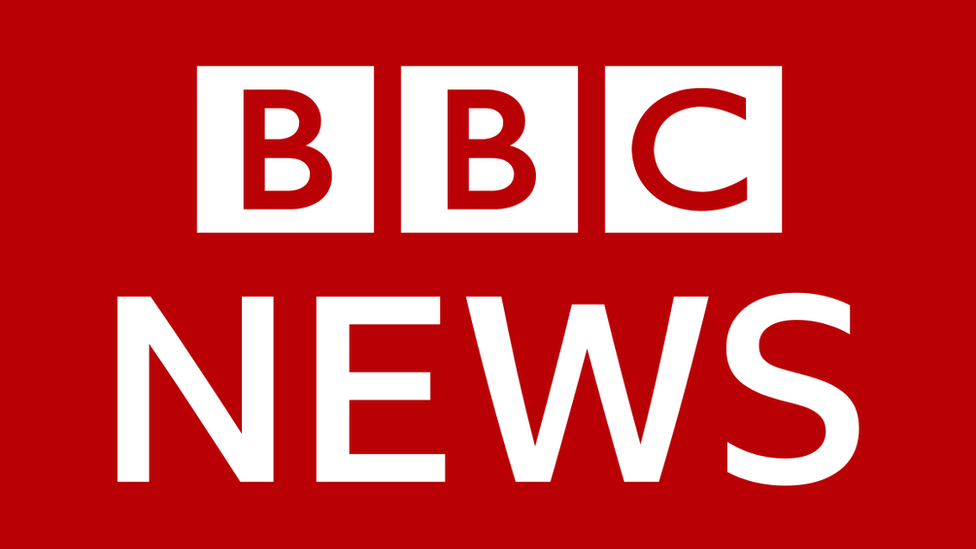General election 2019: Carlaw 'would campaign for Leave' in new EU vote
- Published
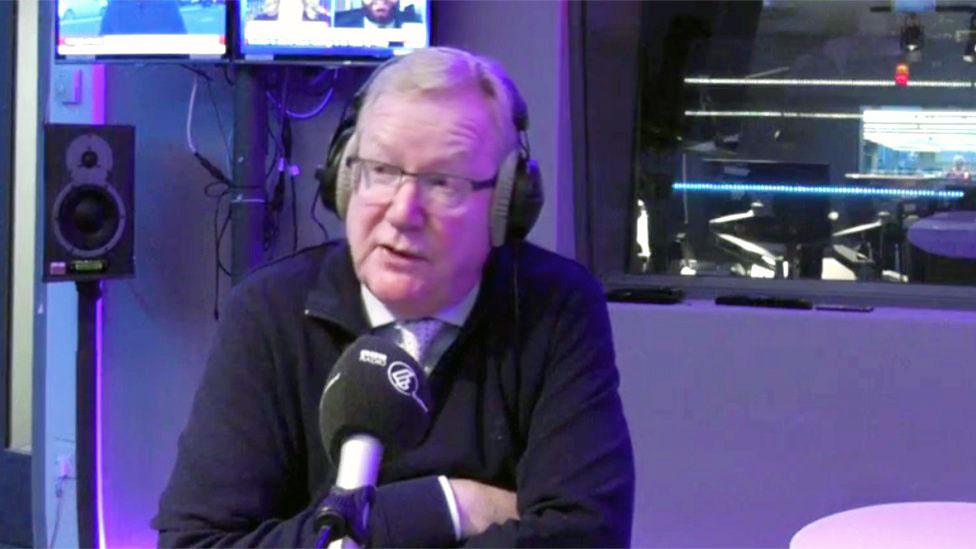
Jackson Carlaw said he would back Leave in a fresh referendum because "the EU has changed" since 2016
Interim Scottish Conservative leader Jackson Carlaw has said he would campaign for Leave if there was a new referendum on EU membership.
Mr Carlaw and the majority of other Scottish Tory MSPs campaigned for Remain in the 2016 referendum.
However he told BBC Radio Scotland that "the EU itself has changed" since then in ways which he could not support.
He opposed the question being put back to the public, saying the atmosphere would be "corrosive and brutal".
Mr Carlaw was the latest in a series of Scottish party leaders to take part in a live interview and phone-in session on BBC Radio Scotland.
The Scottish Conservatives did not formally take a side as a party in the 2016 referendum, but the majority of MSPs - including Mr Carlaw and his then-boss Ruth Davidson - campaigned for Remain.
However he told the BBC's Good Morning Scotland programme that were the contest re-run today, he "would campaign to leave".
He said: "Since 2016, the EU itself has changed. It's now seeking to created a united army of the European Union by 2025, I can't support that.
"I believe in other ways, too, the European Union has changed."
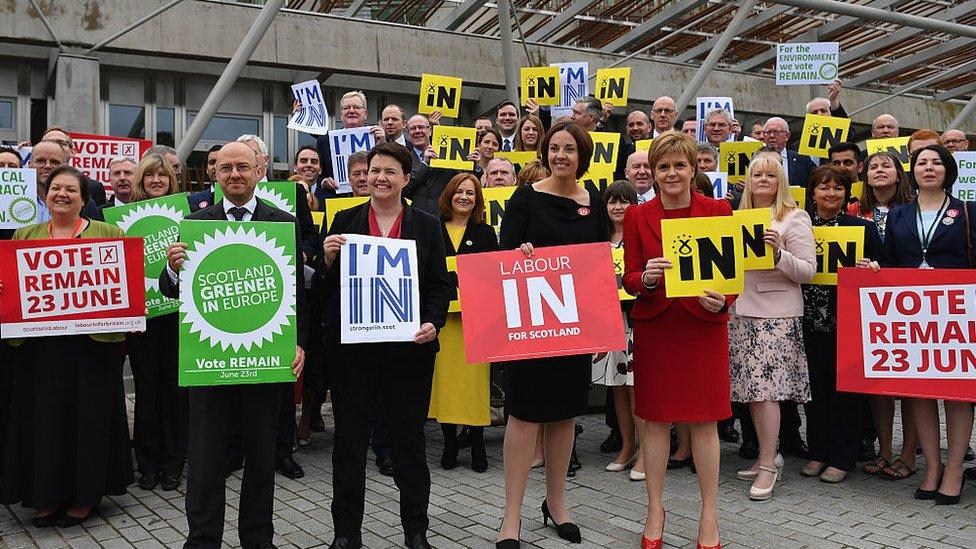
The majority of Scottish Conservative MSPs - including Jackson Carlaw - backed Remain in the 2016 campaign
The party has set itself against having new votes on either Brexit or independence, with Mr Carlaw calling for the country to "move forward" from constitutional divisions.
He said: "I believe, having gone through this whole process, what people need is clarity, I don't believe we can go through another referendum on this or independence without the atmosphere being corrosive and brutal.
"I think, after three years, people now want the clarity that comes from moving forward and I believe that we will leave the European Union."
'Comprehensive' candidate vetting
Mr Carlaw also defended the party's "quite comprehensive" vetting procedure, after two election candidates were dropped over claims they had made "anti-Muslim" and anti-Semitic remarks.
The interim leader said "no vetting procedures in a public office setting are ever going to be complete" in the social media age, but said he had acted "decisively, immediately and without favour" in the circumstances.
The SNP, Labour and the Brexit Party have all also had to suspend candidates in Scotland over comments they had made previously - although all will remain on the ballot paper as nominations have closed.
Pressed on comments Boris Johnson made about Muslim women, homosexuals and the poorest in society before he was prime minister, Mr Carlaw said he did not accept that his party leader was part of the problem.
He said: "When I saw the prime minister before the election, I said to him that I'll judge him on what he says and does as prime minister, not what he said and did before he became prime minister."
Asked if Mr Johnson "gets a free pass on everything that he said in the past", Mr Carlaw said the Conservative leader had been "absolutely straight in his dealings with me".

CONFUSED? Our simple election guide, external
POLICY GUIDE: Who should I vote for?, external
POSTCODE SEARCH: Find your local candidates, external

The SNP have contended that Mr Johnson is "utterly unfit to be prime minister", with Westminster leader Ian Blackford saying that "on policy, on leadership and on personal character, Scotland deserves better".
The party is also opposed to Brexit, with Mr Blackford saying the Conservatives have "repeatedly refused to rule out a no-deal exit from the EU", something which he said would "crash the economy, cost thousands of jobs and hit people's livelihoods".
Scottish Labour have also promised to campaign for Remain in any future referendum. The party's UK leader Jeremy Corbyn has said he would not take a side in a public vote on a renegotiated Brexit deal, but Scottish leader Richard Leonard has said his group would "wholeheartedly" back staying in the EU.
Mr Leonard has also said a second EU ballot would weaken the SNP's argument for a second independence referendum, something his party has ruled out "in the early years" of a new Westminster government.
The Scottish Lib Dems meanwhile have committed themselves to "stopping Brexit and stopping independence".
Leader Willie Rennie said the country needed to move on from "constitutional chaos" to focus on "the issues that really matter", like climate change, education and mental health.
- Published28 November 2019
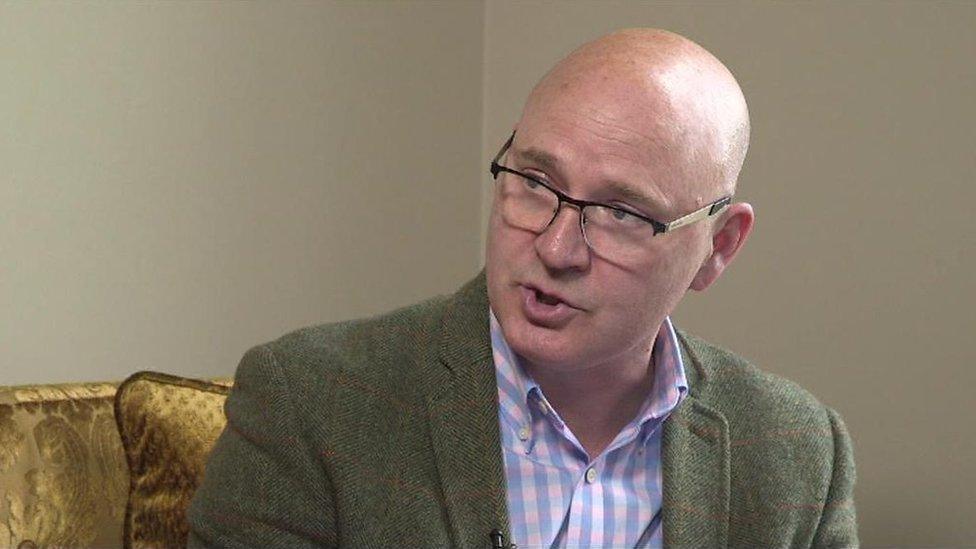
- Published27 November 2019
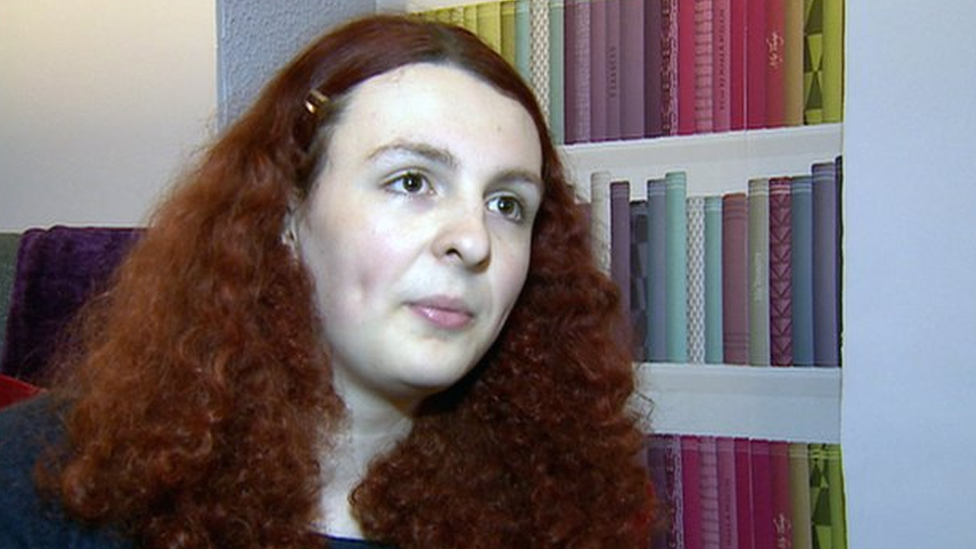
- Published19 November 2019
